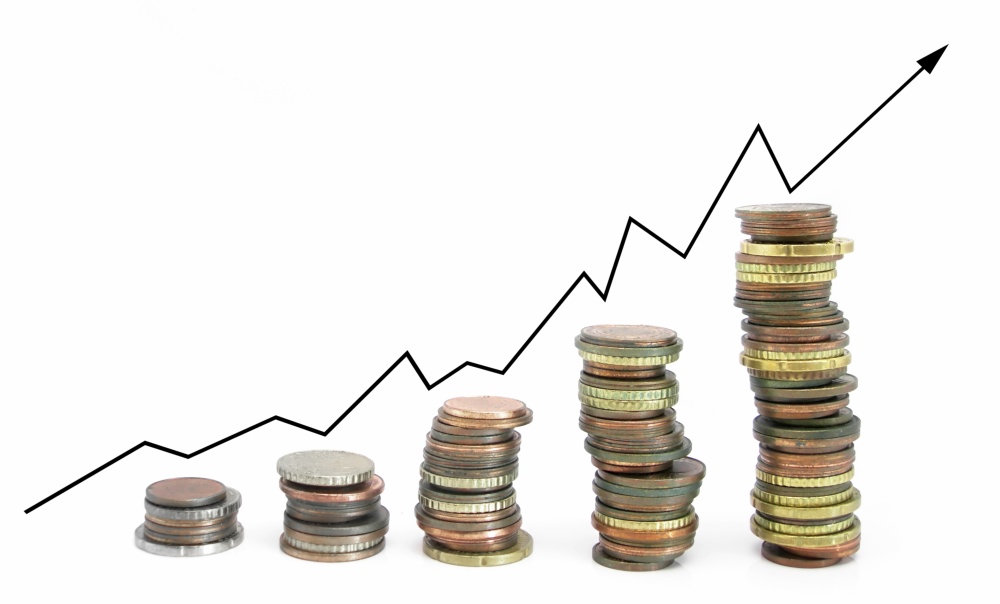When planning for retirement most people start with the basics: their budget, their retirement age, life expectancy and their expected retirement income. Usually the inflation rate assumption is more of an afterthought. We all know that our expenses generally go up each year when inflation is greater than 0%. What so many don’t understand is that higher inflation rates usually mean higher tax bills.

Our tax code is complicated, pretty much everybody knows that. Unfortunately this also means that it’s easy to miss the problems that higher inflation rates can cause.
Inflation Can Whittle Away at Your Investments
The worst relationship you could have with respect to inflation is to earn a fixed income while your expenses increase. A fixed income can consist of bonds with a constant yield or a pension that does not increase with inflation. As an example, I ran some retirement scenarios where I moved inflation up 1% each time.
This is a 62-year old couple that has $1 million at retirement and is invested in bonds with an average yield of 3.5%. They spend $55,000 per year. I started with 2.5% inflation and you can see the investment balances over time below.
They are doing okay in this scenario as their investment balances aren’t being eroded over time. But what happens if inflation is 3.5%?
You can see that their investments are quickly headed towards zero. In fact, if inflation is 4% this couple runs out of money when they are 80 years old.
Inflation And Taxes
Another problem with inflation is that it contributes to your eventually owing capital gains taxes.
In taxable accounts, we all pay taxes on gains that are solely due to inflation. As an example of this, let’s look at a person who owns a second home.
Jack has a second home that he bought this year for $200,000. He currently rents it out and plans on selling it in 25 years. For this example, let’s assume that the house price goes up at a 2.5% annual inflation rate; that means that the price of the home increases by 85% over the timeframe.
Jack now has a capital gain of $213,000 when he goes to sell this home. He will pay 15% federal taxes on this gain, which means $32,000 out of his pocket just due to inflation.
This same thing happens with stocks when their prices move with inflation — you pay capital gains tax when you sell their holdings in taxable accounts.
What Can We Do About It?
In today’s environment with such low interest rates, it is not a great idea to be invested solely in bonds. Not only do they barely yield anything, but if inflation picks up, the holder of the bonds could have a negative real rate of return.
So it’s wise to hold some solid dividend payers in one’s portfolio, no matter your age. Dividends can grow with inflation and corporate revenues are highly correlated with overall inflation. So unlike most bonds, dividends (and thus their yields) can be increased quickly.
We also have the option of buying Treasury inflation protected securities (TIPS). These bonds grow with the Consumer Price Index (CPI) and are therefore a great hedge against higher inflation.
If you’re concerned about serious bouts of inflation, then gold has been the best hedge against this type of problem. In the 1970s with inflation out of control, gold rose by 2,400%!
It’s also wise to put as much money into tax-deferred retirement plans as possible. This limits the bite from phantom taxes on inflation since the money grows tax-deferred. In fact, I found that $1 million in taxable accounts vs. a tax-deferred IRA shows a difference of 25%. So $1 million in the IRA would only be $750,000 in the taxable account simply due to phantom inflation taxes.
Readers, to what extent are you concerned about inflation?
Read More
- Will My 401(k) Last the Rest of My Life?
- How to Split an IRA or 401(k) in a Divorce
- Five 401(k) Alternatives You Need to Know About
- Saving to Boost Your 401(k)
- IRS Announces 2018 Pension Plan Limitations
- Avoid These Common Mistakes When Planning for Retirement
- How to Save for Retirement
- Investing Your Way to Retirement
Leave a Reply